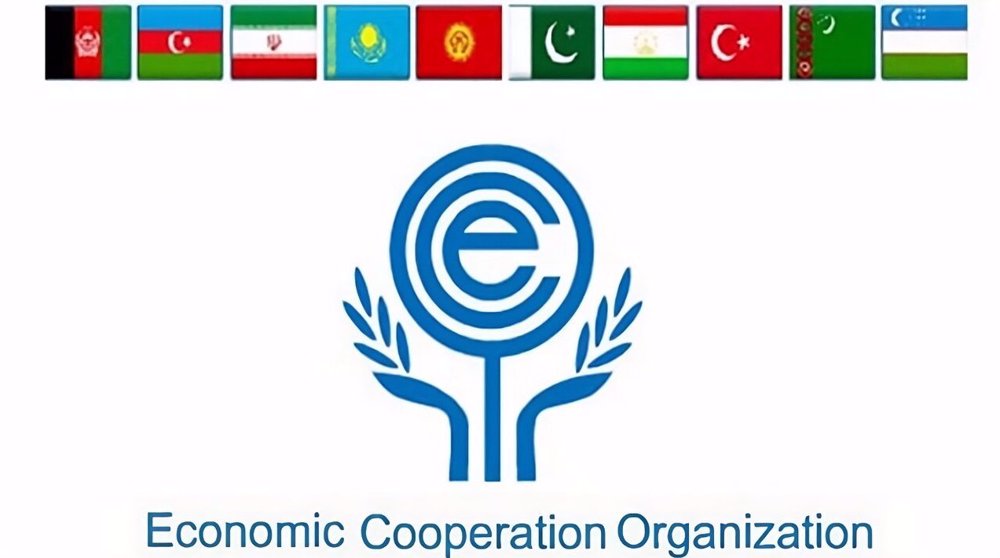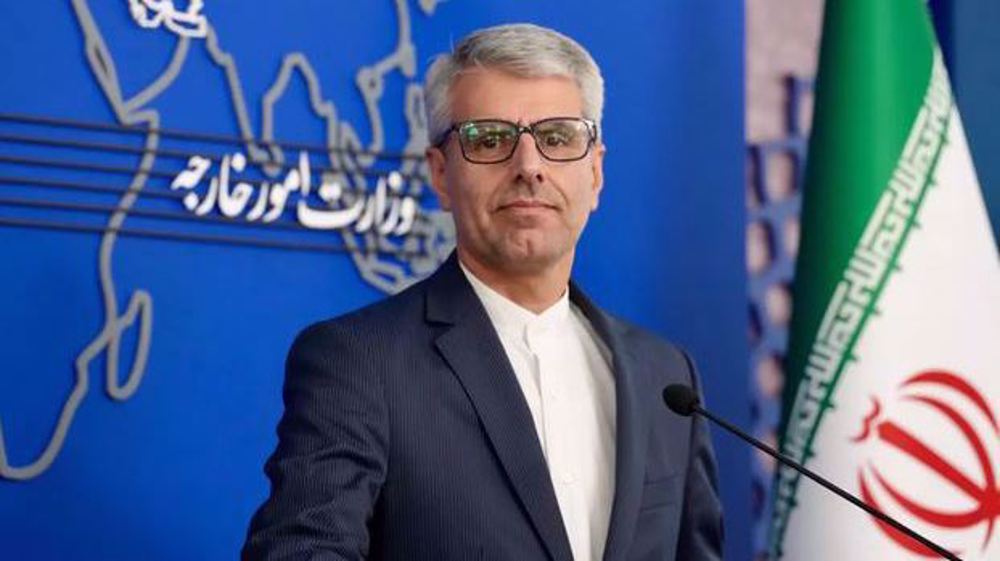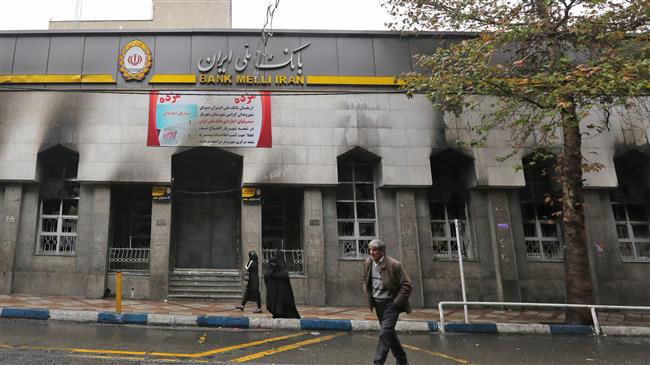American VPN company urges Trump to ramp up US cyber war on Iran
An American VPN research and advisory company has urged US President Donald Trump to ratchet up the country’s acts of sabotage targeting cyberworld activity by various Iranian entities.
Earlier this week, VPN.com CEO Michael Gargiulo wrote a letter to Trump, advising that Washington eliminate all global Internet access and service to all “.ir domains,” which number over 1.3 million, the company said in a press release. The letter was also addressed to the US Treasury Department, and Internet Corporation for Assigned Names and Numbers.
The domains’ services serve as handy and indispensible means of assistance to every Iranian, taking care of a whole host of their everyday needs, ranging from cutting the red tape to online shopping and entertainment.
The move, the US company’s 26-year-old CEO claimed, had to be taken in response to “the most extreme censorship measures in Iranian history.”
He was referring to the Islamic Republic’s recently limiting access to the Internet for security reasons after riots broke out in several cities across the country over gasoline price hikes.
During the melee, the riotous elements, dozens of whom were later found to be in the service of foreign interests, including that of the US, would resort to extensive violence, setting fire to, looting, or destroying various public facilities, including banks, gas stations, and department stores.
Tehran says a group of “saboteurs” were using online services like navigation and maps to coordinate their activities in large cities across the country.
Mobile and Wi-Fi Internet access has, however, been restored countrywide. Foreign Ministry Spokesman Abbas Mousavi clarified on Monday that while Tehran recognizes free access to information as a right, the restriction had been applied during the riots only to safeguard national security, adding that connectivity was re-established later nationwide as the situation improved.
Nevertheless, Gargiulo called the security precaution a “malign and oppressive decision,” recommending sanctions that block access to more than 1,131,300 .ir domains, “all of which cannot currently be accessed by Iranian citizens due to government-initiated censorship.” His comments came while the precaution taken by Tehran had exempted the specific domains in order not to cripple public services.
The VPN.com chief himself acknowledged that such potential US sanction “would cause massive economic and communication disruption to Iran,” but still claimed that his recommendations were sought to “promote peace and freedom of expression for the people of Iran.”
He noted that he had composed the letter to notify Washington that “there are additional pressures, targeting Iran, that can be applied to fast track diplomacy” with the country, which he alleged was “the world’s largest state sponsor of terrorism.”
The US has already made the Islamic Republic a target of its self-styled campaign of “maximum pressure.”
The drive has seen the US leaving a multi-party nuclear agreement with Iran last year, and returning the nuclear-related sanctions that the deal had lifted. Both the withdrawal and re-imposition of the bans came while the nuclear accord has been ratified in the form of a United Nations Security Council resolution.
Earlier this month, the Treasury Department’s Office of Foreign Assets Control added Iran's Minister of Information and Communications Technology (ICT) Mohammad Javad Azari Jahromi to its sanctions list that would freeze any of his property under US jurisdiction and prohibit Americans from any dealings involving those assets.
Azari Jahromi dismissed the sanctions, saying he would not let Washington prohibit Tehran's development.
On Sunday, the US State Department also called on Facebook, Instagram, and Twitter to block the accounts of Iranian government leaders over the Internet blackout.
This February, reports indicated that Iranian users of iOS -- a mobile operating system created by Apple Inc. -- had been unable to access the installed applications originating in Iran.
Back in August 2018, Facebook targeted hundreds of accounts allegedly tied to Iran and Russia under the pretext of fighting what it calls “misinformation” campaigns. Among the accounts was one belonging to the Quest 4 Truth (Q4T) Iranian media organization, which promotes Islamic values.
A similar move was taken by Google against 39 YouTube channels at the time. The channels reportedly belonged to the Islamic Republic of Iran Broadcasting (IRIB), which condemned the move as a “coordinated” campaign and a "clear example of censorship" aimed at preventing the dissemination of truth and alternative viewpoints online.
In September that year, Foreign Minister Mohammad Javad Zarif harshly criticized Twitter for blocking the accounts of "real Iranians," but overlooking the "regime change" propaganda spewing out of Washington.
Iraqi fighters conduct fresh retaliatory attacks on vital Israeli targets
Gaza hospital chief calls for help amid Israel’s ‘extermination campaign’
‘Israel delusional’: Hamas says US ‘full support’ enabled genocide, urges Biden to ‘atone’
Nov. 24: ‘Axis of Resistance’ operations against Israeli occupation
Iran’s IRGC Ground Force, Azerbaijani army kick off joint military drill
VIDEO | Security officers injured, one person killed in Amman shooting
VIDEO | Press TV's news headlines
VIDEO | Palestinian women, life under Israeli violence


















 This makes it easy to access the Press TV website
This makes it easy to access the Press TV website